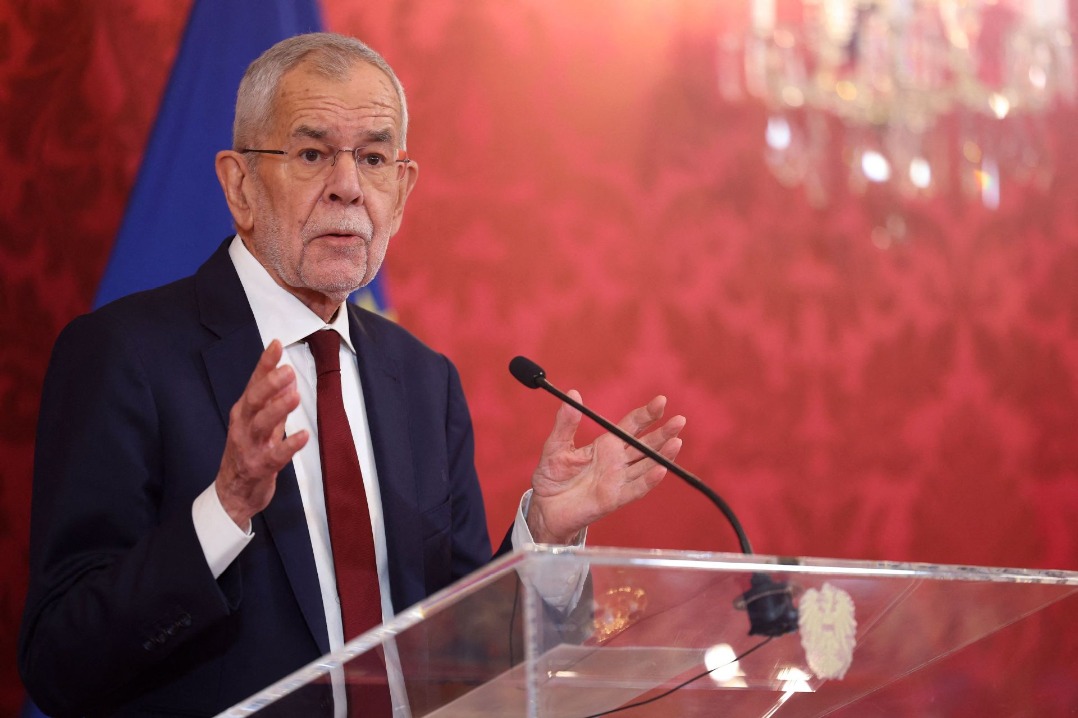China warns US over BRI criticism

China says it is "fed up" with the United States' irresponsible remarks about the Belt and Road Initiative, also known as BRI, following criticism from US Secretary of State Mike Pompeo.
The initiative, proposed by President Xi Jinping in 2013 in a bid to accelerate economic development along the Silk Road, was slammed by Pompeo during his speech in London on Wednesday.
He criticized China for peddling "corrupt infrastructure deals in exchange for political influence," and using "bribe-fuelled debt-trap diplomacy" to undermine good governance.
In a news conference in Beijing on Thursday, Chinese Foreign Ministry spokesman Geng Shuang said China is tired of the irresponsible comments made by the US.
"But what was the outcome?" said Geng. "One hundred and fifty countries, 92 international organizations and more than 6,000 delegates from various countries attended the second Belt and Road Forum for International Cooperation, including 50 delegates from the United States.
"I think this is the vote of confidence for the international community taking actions to build the BRI. It is also the best response to the words and deeds of the US."
In the past few days, we have noticed that a few individuals in the US seem to be singing the same old tune, seeking to attack and smear the BRI, Geng said. "They're not fed up with saying this, but we're fed up with hearing it,"he added.
"I want to remind them again, don't overestimate your ability to fabricate rumors, and don't underestimate the judgement of others. If they want to, let them continue talking and we will continue getting on with things."
Christopher Bovis, professor of business law at the Business?School of the University of Hull, sees the BRI as an extremely sophisticated policy of outward investment, which links investment with the outcomes of economic recovery, especially in parts of the world that have suffered market failures.
"To call the BRI an instrument of 'bribe-fuelled debt-trap diplomacy which undermines good governance and threatens to upend the free market economic model on which so many countries depend' is unjustifiable and reflects protectionism," he said.
"The BRI is a good example of responsive and responsible leadership which embraces the positive dynamics of industrial policies across the developing world and offers infrastructure and investment solutions to the challenge of the new world order."
Jim O'Neill, chairman of the Chatham House organization, and the man who coined the term 'BRIC' to describe Brazil, Russia, India and China, said:" Executed correctly, BRI could transform world trade. I think China needs to learn from the first few years and adapt with others as the recent meeting showed. The US would be better served offering constructive criticism to help the journey."
The second forum on the Belt and Road cooperation was held in Beijing in late April. Erik Berglof, director of the Institute of Global Affairs at London School of Economics, said it was "a great success for China, but the Chinese leadership also got clear signals from many participating countries and organizations about how to approach the initiative going forward."
He pointed out that China needs to work with the multilateral development banks and sign up to the international principles of environmental, social and governance standards, such as the Asian Infrastructure Investment Bank has largely done.
"These kinds of infrastructure projects must be owned and embraced by the countries and fit into their overall development plans — otherwise they will not work out—and they must not create additional vulnerabilities, many of the countries involved are already strained in terms of debt capacity," said Berglof. "Respecting these principles is in China's own interest."































